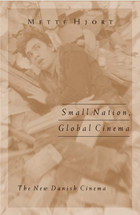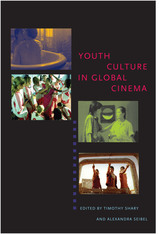

Hjort offers two key strategies underwriting the transformation and globalization of contemporary Danish cinema—the processes of cultural circulation and the psychological efficacy of heritage. Exploring the Dogma 95 movement initiated by Lars von Trier and Thomas Vinterberg as well as films by Erik Clausen, Gabriel Axel, Henning Carlsen, and Ole Bornedal, among others, Hjort examines means for cinematic globalization specific to Denmark, but then evolves her investigation into a truly comparative framework encompassing references to Hong Kong, Latin America, and Hollywood filmmaking. Providing a fresh way of looking at cultural influence in the era of globalization, Hjort’s concept of “small” nation points as much to the dynamics of recognition, indifference, and participation as it does to more common measures of population size, economic strength, or linguistic reach.
Mette Hjort is professor of intercultural studies at Aalborg University.

Coming of age is a pivotal experience for everyone. So it is no surprise that filmmakers around the globe explore the experiences of growing up in their work. From blockbuster U.S. movies such as the Harry Potter series to thought-provoking foreign films such as Bend It Like Beckham and Whale Rider, films about youth delve into young people's attitudes, styles, sexuality, race, families, cultures, class, psychology, and ideas. These cinematic representations of youth also reflect perceptions about youth in their respective cultures, as well as young people's worth to the larger society. Indeed, as the contributors to this volume make plain, films about young people open a very revealing window on the attitudes and values of cultures across the globe.
Youth Culture in Global Cinema offers the first comprehensive investigation of how young people are portrayed in film around the world. Eighteen established film scholars from eleven different national backgrounds discuss a wide range of films that illuminate the varied conditions in which youth live. The essays are grouped thematically around the issues of youthful resistance and rebellion; cultural and national identity, including religion and politics; and sexual maturation, including gender distinctions and coming-of-age queer. Some essays engage in close readings of films, while others examine the advertising and reception of films or investigate psychological issues. The volume concludes with filmographies of over 700 youth-related titles arranged by nation and theme.
READERS
Browse our collection.
PUBLISHERS
See BiblioVault's publisher services.
STUDENT SERVICES
Files for college accessibility offices.
UChicago Accessibility Resources
home | accessibility | search | about | contact us
BiblioVault ® 2001 - 2024
The University of Chicago Press









